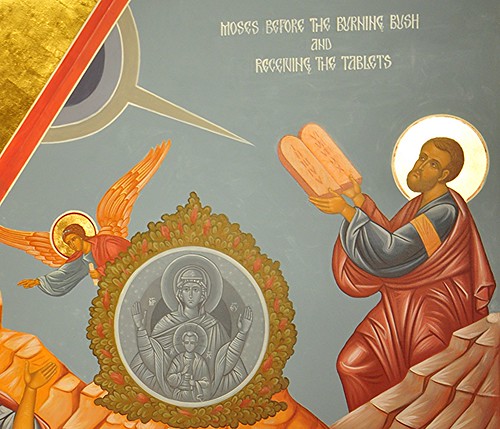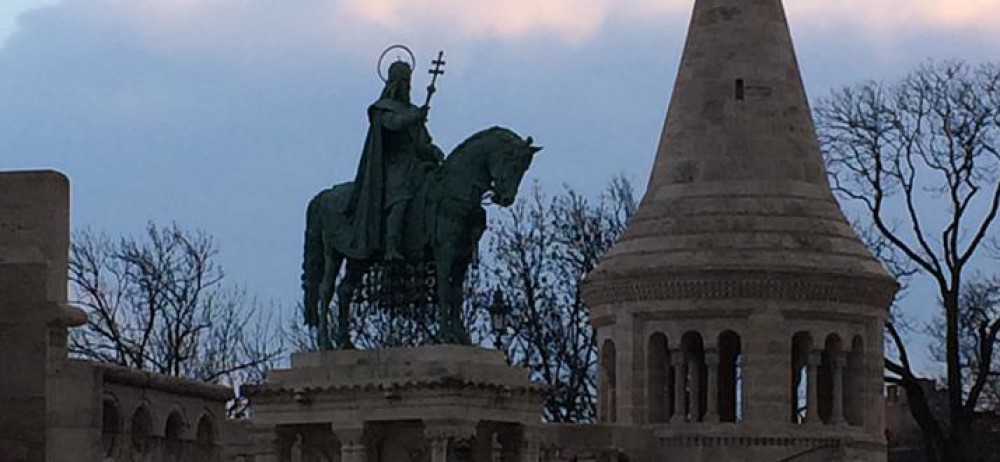
Moses goes up into the smoke and fire and receives the Ten Commandments from God on Mt. Sinai. He has set a human barricade around the base of the mountain to insure that no “tourists” or sightseeing thrill seekers climb up the rocky heights behind him, hoping to see and hear what is intended only for Moses to see and hear. Even his brother Aaron, who goes partway up the mountain with his brother Moses, turns around and goes back to the bottom before Moses reaches his destination.
The first three or four commandments are commonly considered to describe our duty towards God; the following commandments are commonly thought to reveal our duty to our neighbors. It is these Ten altogether that the Early Church thought were eternal; the other commandments of the Old Testament—according to the Apostolic Constitutions, a 4th century Syrian handbook for how to run a parish church—says that the other Old Testament commandments were all given after the idolatry of the Golden Calf and all have to do with regulating the worship of Israel (how to worship, who can worship, what is worshipped, behavior that can get a person banned from participating in worship).
The most famous and controversial of these first three commandments is the commandment condemning idolatry. Most people think idolatry means worshipping statues but idolatry is really about letting anything be more important than God. Family, ideas, food, sex, drugs (alcohol included) can become idols if any of them are more important to us than God.
People often also think idolatry means worshipping devils and demons. St. Paul doesn’t think idolatry is about worshipping demons; he thinks idolatry is a waste of time because the “god” the statue represents doesn’t exist. According to St. Paul in First Corinthians, idolatry is the worship of a thing that isn’t real whereas worship of the true God is worshipping what really exists. That’s why he thinks it’s safe for a Christian to eat meat that was sacrificed to an idol; the meat wasn’t sacrificed to a devil but it was offered to something that doesn’t exist so it wasn’t really offered to anyone or anything.
That doesn’t mean that devils and demons don’t exist. The NYTimes had a fascinating article this weekend about the differences in religious power wielded by a Christianity that takes demonic power seriously vs. a Christianity that does not take demonic power seriously.
